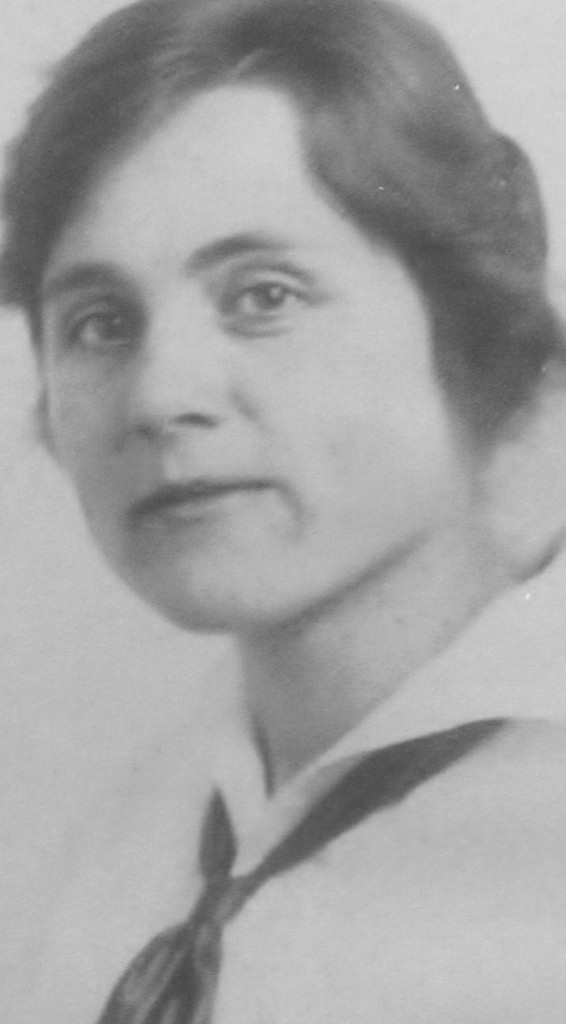
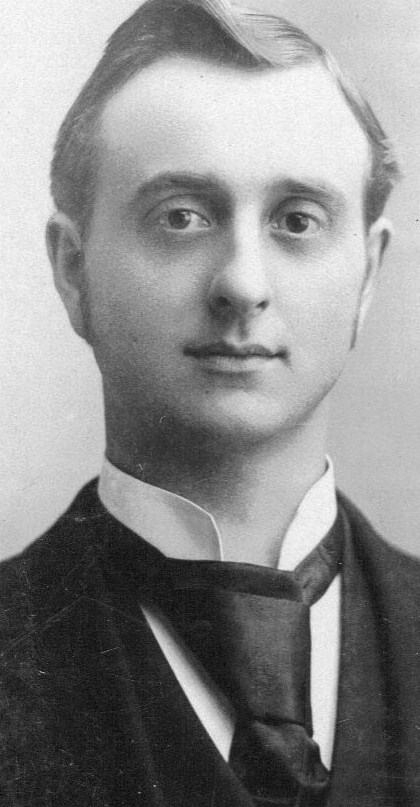 Bear with me, I want to talk about my grandparents.
Bear with me, I want to talk about my grandparents.
Hilda was my mother’s mother. Thomas was my father’s father. The difference between my mother’s and my father’s families was enormous.
My mother’s family was large and blue-collar — farmers, mechanics, truckers – and not much money or education; not much use for the fine arts; they all had a lot of kids.
My father’s family was small and white-collar; more money than my mother’s family; and everywhere were pictures I still think are beautiful and books about music, literature, religion, and philosophy.
Thomas’s house was full of culture. Hilda didn’t even have a house. I liked them both and felt the difference but never thought about why.
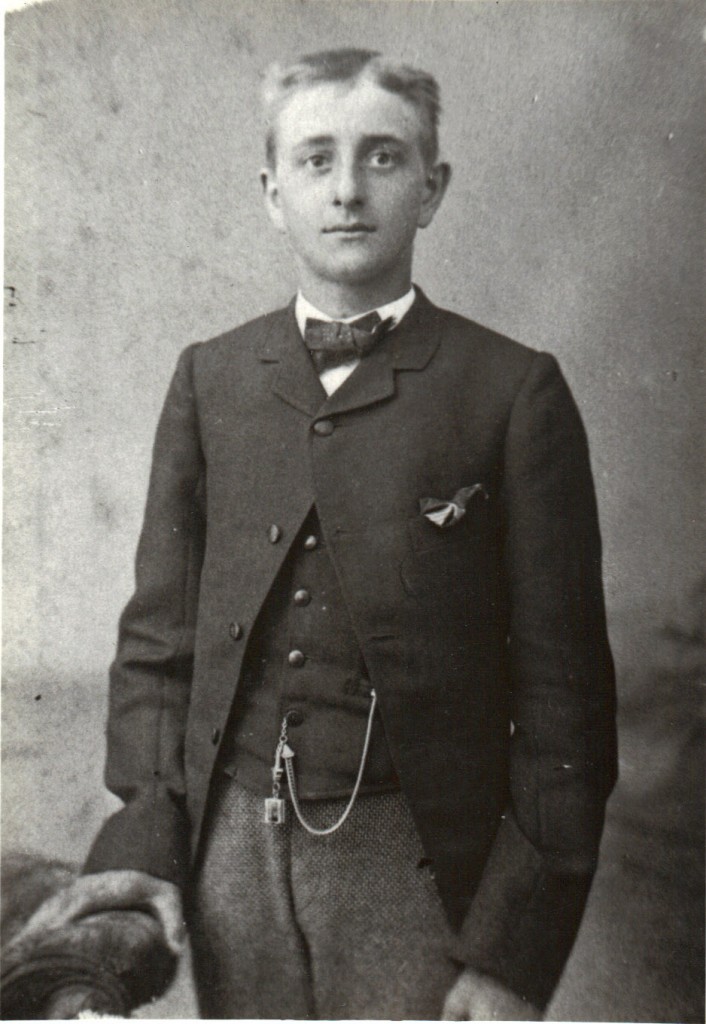 Thomas’s parents came to Crediton, Canada, in 1848 – troubles in the old country – and cleared forest, built first a shanty and then a log house, dug a well, heated and cooked with fire, planted a garden to eat from and then grain to sell, built out-buildings for animals, and over 50 years, had 11 or 12 or 14 kids – accounts vary. Thomas was born last, in 1870 and when he turned 16 and wanted to be a teacher, he got the hell out of Dodge.
Thomas’s parents came to Crediton, Canada, in 1848 – troubles in the old country – and cleared forest, built first a shanty and then a log house, dug a well, heated and cooked with fire, planted a garden to eat from and then grain to sell, built out-buildings for animals, and over 50 years, had 11 or 12 or 14 kids – accounts vary. Thomas was born last, in 1870 and when he turned 16 and wanted to be a teacher, he got the hell out of Dodge.
Hilda’s parents came to Lockport, Illinois in 1890 as sponsored, indentured workers on a working farm, had 6 kids – a boy and 5 uppity girls – and after they worked off the indenture, bought their own farm. The girls fed chickens, herded cows, picked cherries, made butter, washed clothes on a washboard, cooked/cleaned/sewed/canned. They also played piano, organ, accordian, violin, coronet, and sang. They’d take the two-horse buggy to town and see the movies, row on the river, go dancing at Electric Park. Hilda wanted to be a teacher but Pa didn’t believe women needed education so she didn’t go to high school. She got a job at the phone company. She didn’t get out of Dodge until 1916, when she was 25.
Comparing Thomas and Hilda at the moment they each left home, Hilda had the advantage. She was born in 1891 and so later than Thomas and in country that was farther along with roads, store-bought bread, and telephones. And her family had a little more money than Thomas’s and she had an easier childhood. So if you had to pick the one who’d end up dirt-poor and tenant farming alone with 6 kids during the Great Depression, you wouldn’t have picked her.
When Thomas left the farm, he took the advice of some visiting ministers and went to Naperville, Illinois. He worked his way through high school, then college, and then a theological seminary, all in the same town. He preached at several churches, married, and settled there, teaching at the college he’d attended. His specialties were Faust and Job: why do people do evil, why does evil happens to people. “He yearned for some things,” his daughter told me, “that were above and beyond what daily life could bring you. It was something above and beyond him that he was wanting to find out.”
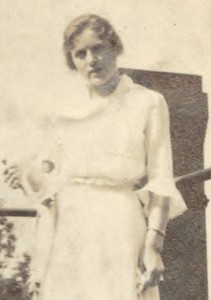 When Hilda left the farm, she went to Colorado to meet up with their hired man, the one Pa had told her not to fool around with. The hired man was cute and charming, and Hilda was famous for wanting to have a good time and not doing what she was told. So she married the hired man and Pa disinherited her. But Pa had been right. The hired man had no interest in farming, was bone-lazy and ran around with other women and the only reason he didn’t drink was that it made him sick. They moved back to Illinois and from one tenant farm to the next. Hilda and the kids did the farming, the kids began at age 5. After the kids grew up and left home and the hired man took off with another woman, Hilda lived with the kids, minding their children, doing their laundry. She’d have said she was happy but she didn’t laugh much, she barely smiled.
When Hilda left the farm, she went to Colorado to meet up with their hired man, the one Pa had told her not to fool around with. The hired man was cute and charming, and Hilda was famous for wanting to have a good time and not doing what she was told. So she married the hired man and Pa disinherited her. But Pa had been right. The hired man had no interest in farming, was bone-lazy and ran around with other women and the only reason he didn’t drink was that it made him sick. They moved back to Illinois and from one tenant farm to the next. Hilda and the kids did the farming, the kids began at age 5. After the kids grew up and left home and the hired man took off with another woman, Hilda lived with the kids, minding their children, doing their laundry. She’d have said she was happy but she didn’t laugh much, she barely smiled.
Except for Hilda’s slight advantage, she and Thomas had similar starts: both came from immigrant farm families that worked hard and didn’t much emphasize education; they were both intelligent and both wanted to teach. And to teach in turn-of-the-century Illinois, you had to go at least to high school, and Thomas did and Hilda didn’t. Only around 20 percent of the farm kids in Illinois at the time did, but she could have gone: given her character, Pa’s discouragement is a red herring; and in fact the Lockport High graduation picture of 1891 is half women.
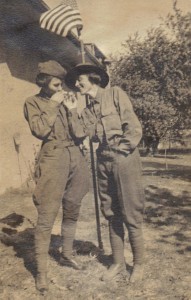 So those families were different not for great economic and societal reasons but because Thomas and Hilda were. He was a serious-minded man and she wasn’t hell-bent on education and liked having fun with her sisters. But even so, if she had married the right man, she’d have been fine; all her sisters were.
So those families were different not for great economic and societal reasons but because Thomas and Hilda were. He was a serious-minded man and she wasn’t hell-bent on education and liked having fun with her sisters. But even so, if she had married the right man, she’d have been fine; all her sisters were.
And for how many eons has that been true — that other things being equal, a man can marry wrong and still be successful, but a woman does and she’s screwed? Witness: books by Jane Austen, Henry James, Edith Wharton. The minute Hilda got on that train for Colorado, it was over.
Does this still happen? I don’t know but if I think about it I’ll get mad, and I won’t even know what I’m mad about.
___________
All pictures are family photos. The second picture of Thomas Finkbeiner was probably taken before he left home. The second picture of Hilda Matson Diehl was probably taken just as she was about to leave for Colorado. The last picture, taken in 1919, is of Hilda and one of her sisters, Hilda on the right, fooling around in the uniforms of the sister’s boyfriend and smoking cigarettes.
Unfortunately, there is too much truth to what you say. And I think that it still happens all too often today. In fact it almost happened to me until I realized how important education was to my future and got back on track as part of my maturing process. Good article. Please send to Den. Thanks.
Yup. Education. And for Hilda, the exact wrong guy. I am SO tempted to post those gorgeous pictures of you before your maturing process began but I’ll resist.
Nice article, so I’m just nitpicking when I say that “coronet” is probably not the word you wanted. Cornet, perhaps?
Yes, of course “cornet.” I’m thinking “coronet” might have been how my relative pronounced that word and when I wrote this I was in relative-world. Silly me.
Ann, thanks so much for that. I am not in the family anymore but I knew Hilda and really liked and respected her. Funny that I like the family so much more then the ex.
I think the family — probably anybody’s family — is easier to like from a distance. I didn’t start appreciating and liking Hilda until I myself had gotten out of Dodge. She was harder on the boys than the girls — wonder why that was?
I read your reply a couple of days ago but as I thought more about this, I realized that I needed to reply. The issue is about my past, questionable as it may be to some. I have very few regrets and really wouldn’t change much if I had it to live over. All those things were part of my life experiences and as they say, It is what it is! I wouldn’t trade my parents, my growing up on the farm, my big family, and my close extended family with all the cousins who are near and dear to my heart more and more as I grow older. Why I did what I did or looked the way I looked was an enigma to me at the time but I now realize that it was a strive toward individualism with some shock value thrown in. Also, being hip or cool was probably in there somewhere as well. Thanks again for your blog. It is a pleasure.
I thought those pictures were drop-dead hip and cool. At the same pre-maturation stage in my life, I looked like a dork.
I do think it is interesting that 2 people who have such “similar backgrounds” (Hilda and Thomas) should have such “different outcomes.” After reading this, and ruminating about some other things I have recently read about our family, I have come to fully appreciate the concept of family karma. Come to find out, my grandfather was a “free thinker” who apparently took issue with some of the basic tenants of his religion, (something I had not known) as did my father, as do take issue with my forebears religion. Life is wonderful and mysterious!